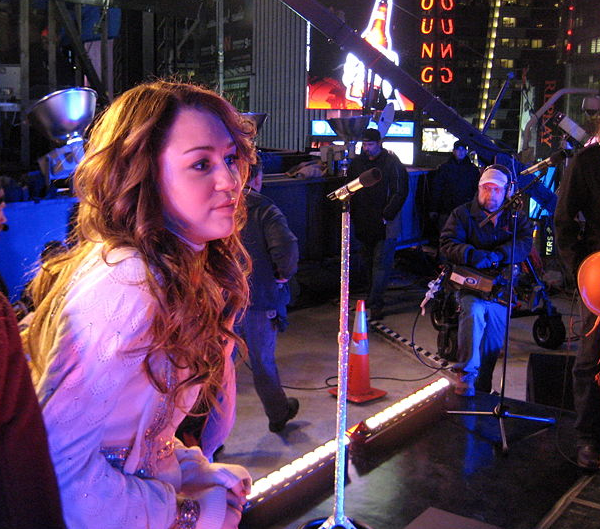Women And The Disney Effect

Suddenly, our most eccentric stars are the same ones that we once deemed the best role models.
Miley Cyrus is a great example of such a transition. Gaining her fame on "Hannah Montana," a series following the life of a girl living a double life (a famous pop star, and an average schoolgirl), Cyrus was in the limelight starting at the age of 12. Jump to today, and the 22-year-old twerking songstress is almost unrecognizable. It’s no secret that Cyrus is constantly being criticized for being overly provocative and vulgar, and almost everyone can admit to at some point complaining that she “went to far.”
Raven Symone, another Disney star, started out even younger than Cyrus, featured in shows such as "The Cosby Show." But similarly to Cyrus, her real breakout began when starring in the hit series, "That’s So Raven." The Raven Symone we see today on "The View" again shows great differences from the one we saw on Disney. She has acknowledged having a female partner, but rejected any type of labeling. She continued this thought with her highly criticized comments about not considering herself African-American.
Though these two women pursued different career paths within the entertainment industry, they both share the scrutiny faced when a girl leaves the Disney Channel and transitions into a woman independent of the network’s restrictions. This scrutiny stems from the problem that as an audience, we idealize females on the Disney Channel as poster children for the American youth and we don’t appreciate anyone breaking that boundary.
These young women have the identity of the roles they play so engrained in them that when they leave the show, they are thrown into a world where they are now the age of young adults and expected to have some sense of self that helps them navigate the real world, and furthermore, one that is authentic, yet bizarrely childish. But where would they have gained such an understanding when being forced into a shell of naivety thus far? It’s at this point that we tell these women that they may uncover this mature identity, but only if it does not conflict with the box we have built for them. And maybe the worst part is that it must be done all under a microscope, with every move being too controversial and daring.
READ MORE: A Look At Television's Role In LGBT Acceptance
I get the argument that as a public figure, you’re held to a different standard. Knowing that you’re a role model to younger girls means that the decisions you make may be seen as a roadmap to future generations. However, when it comes to Disney stars it just seems unfair.
Cyrus and Symone were hardly in a place to consent to this when they started as child stars on the networks, but even more so, maintaining the image of who you were on Disney shouldn’t be a requirement for existing in reality. They are playing a role. That should end when they step off of the set, and even more so when the show stops producing new episodes. Otherwise, rather than uplifting women into adulthood, we are hindering them. Furthermore, why are we, the once consumers of their televised product, not allowing the natural transition that we as young women are also facing as we grow up alongside these stars?
Perhaps the biggest problem is that it’s a female-only issue. Men have this seamless transition to adulthood that allows for their growth in understanding of things such as sexual and racial identity, starkly contrasting the experience of women like Cyrus and Symone. When boys leave Disney as boys, they either seem to trail off and are never heard of again, or are able to seamlessly redefine themselves in the adult world. Why do we create this hotbed of criticism over Cyrus’ dance moves but praise Nick Jonas for his re-imagined musical identity as sexy R&B artist? It sends a much greater message about the unjustified pressures and restrictions that we as a society put on women, contributing to the barrier success as a female.
I can’t convince anyone to abandon expectations of Disney stars all together, but hopefully I can shed some light on why this expectation is unfair. One thing is certain, however, it surely is a dangerous circumstance for a young girl to grow up in.
Reach Staff Reporter Brittany Brazil here.



